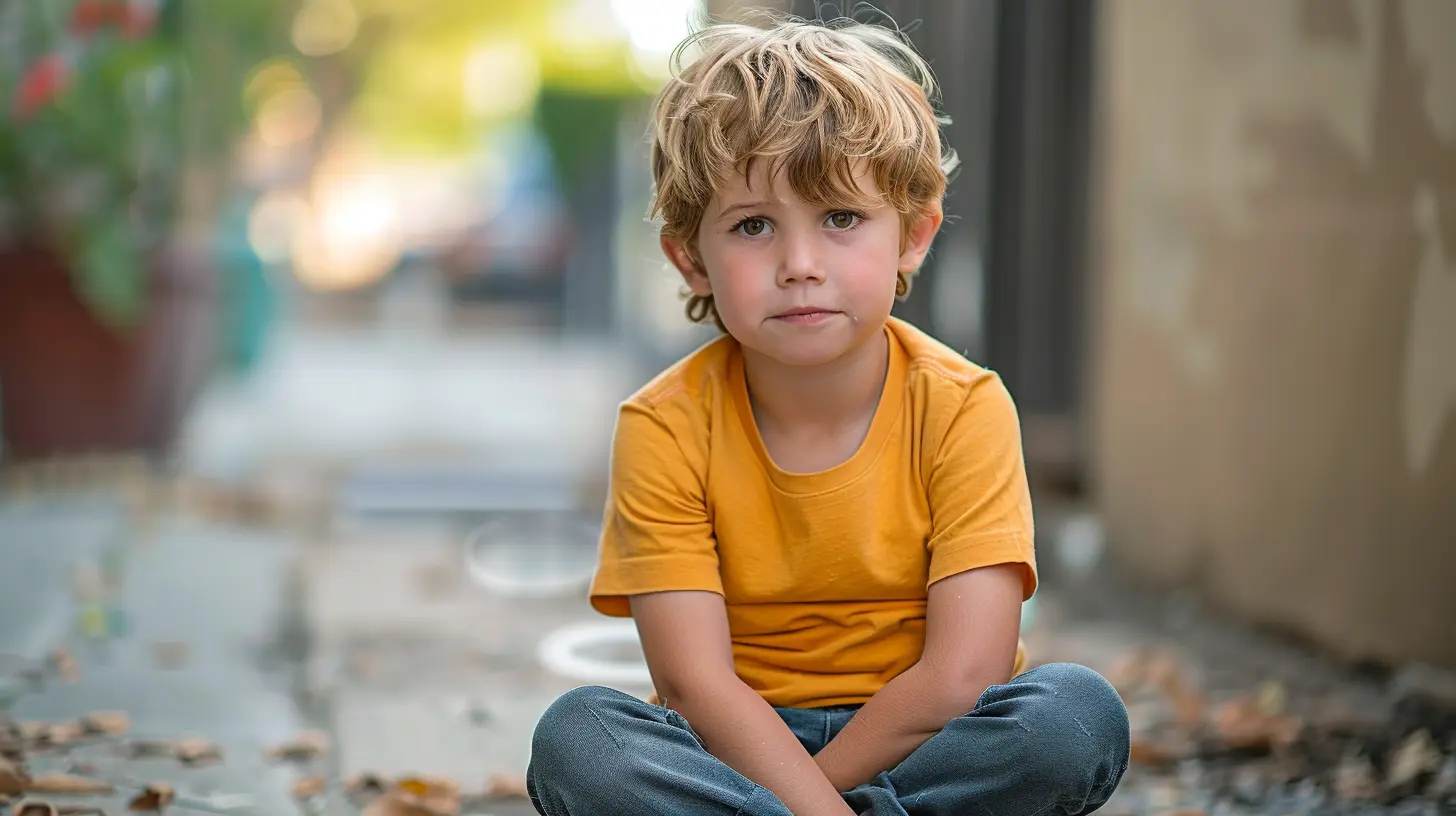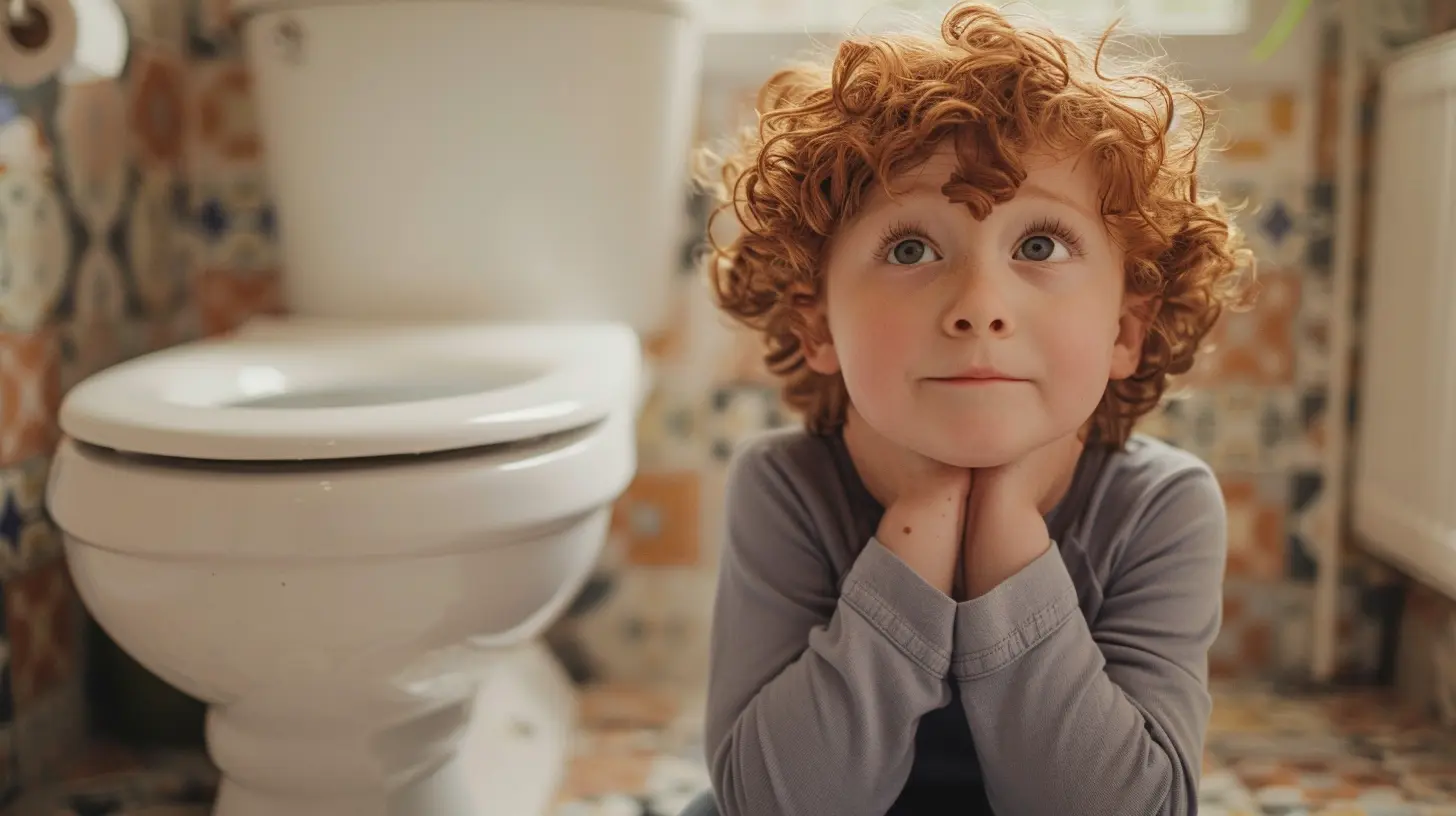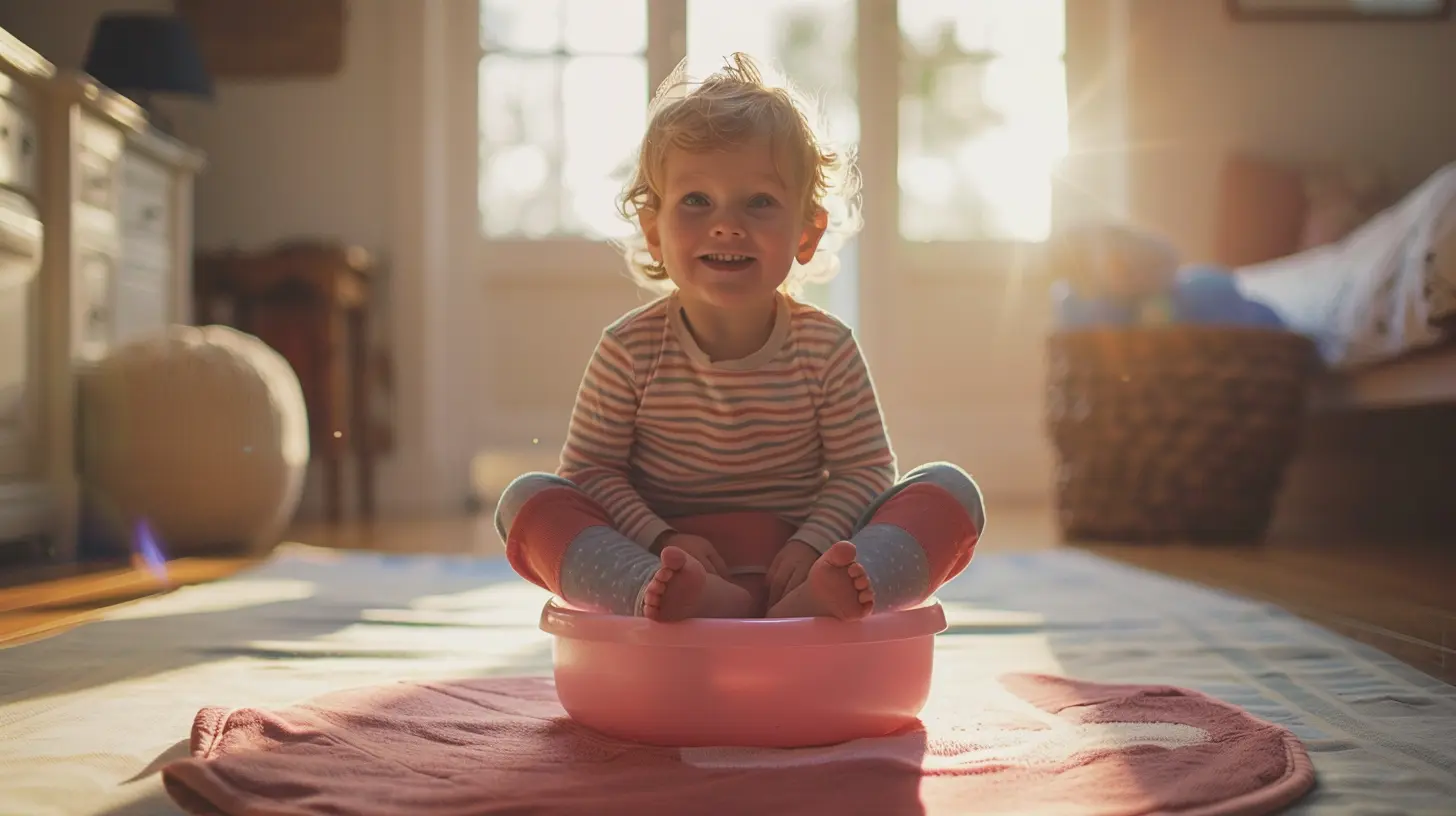The Stress of Potty Training: Overcoming Your Child’s Resistance
15 August 2025
Potty training. Just reading those two words can either bring back fond (or not-so-fond) memories or trigger current stress if you're smack in the middle of it. Every parent tackles it eventually, but no one really warns you how mentally exhausting and emotionally confusing the process can be—for both you and your little one.
If you're here, chances are you're dealing with some potty training resistance from your child and wondering if it's normal (spoiler alert: it absolutely is). You're probably also wondering how on earth to overcome it without losing your mind. Let's break it down, talk about the why behind the resistance, and how to gently guide your child out of the “nope, not doing it” phase.

Why Potty Training Feels Like Climbing a Mountain
Let’s be real: potty training is one of those parenting milestones that sounds simple on paper. Buy a cute potty, let your child watch a cool cartoon about it, cheer during every attempt, toss a treat their way, and boom—they’re diaper-free, right?Not exactly.
Potty training taps into some pretty big issues. It's not just about peeing in a toilet. It's about independence, control, fear of change, and leaving behind a phase of babyhood. For some kids, it’s terrifying. For others, the issue is control—plain and simple.
You're Not Alone
If your toddler is refusing the potty like it's a torture device, you're in good company. Toddlers crave control. They're in a phase where saying "NO!" gives them a sense of power. And what’s more powerful than controlling their own body? The potty is their turf, and they know it.
Common Reasons Kids Resist Potty Training
Understanding why your child might resist potty training helps you stop taking it personally. Don’t worry—it’s not about your parenting. It’s about how your child sees the world.1. Fear of the Unknown
Toilet flushing sounds? New sensations? A gaping hole in a seat? Yeah, it can be overwhelming. Imagine being asked to suddenly use an unfamiliar piece of equipment every few hours that makes noise and requires coordination.2. Wanting Control
Toddlers are tiny control freaks (and I say that with love). Choosing when, where, and how they go is one of the few ways they have power. Refusing to go potty can become their way of asserting independence.3. Physical Readiness Isn’t There
Parents often start earlier than their child is truly ready. If a child can’t yet recognize the sensation of needing to go or isn’t capable of pulling down their pants, you're setting them—and yourself—up for frustration.4. Past Trauma or Negative Experiences
Maybe they had an accident that embarrassed them. Or someone scolded them for a mess. Potty training is sensitive business. One bad moment can create a big hurdle.
Signs Your Child Isn’t Ready (Yet)
Pushing before they’re ready creates more stress and often delays things even further. It’s important to recognize the signs of readiness before jumping into the potty ring.Here are a few to watch for:
- Pulling at dirty diapers
- Showing interest in other people using the toilet
- Staying dry for longer stretches
- Communicating when they’re going or about to go
- Hiding to go in their diaper (yes, that counts!)
- Trying to remove their own diaper or use training pants
If your child isn’t hitting these markers, take a step back. There’s absolutely no rush.

What Can You Do to Make Things Easier?
Okay, so your child is resisting. Probably digging in their heels, peeing behind the couch, and treating the potty like a foreign object. What now?Don’t worry—we’ve got some real-world strategies that actually work.
1. Take the Pressure Off
This is the biggie right here.The more pressure you apply, the more resistance you get. It’s like trying to push a boulder uphill—it won't move unless it wants to.
Try a low-key approach. Leave the potty visible. Let them sit on it with clothes on. Read books about potty time. Watch funny videos. Normalize it without making it a huge deal.
2. Create a Potty Routine
Routine gives toddlers a sense of security. Set up regular “potty breaks” during easy transitions—like after meals or before bath time. Make it a no-pressure event. If nothing happens, praise them for simply trying.3. Offer Choice Whenever You Can
You know how we said toddlers crave control? Give it to them—in small doses you can handle.Let them choose their potty seat, their big-kid underwear, even the sticker they get for trying. When they feel like they’re leading the show, they’re more likely to participate.
4. Model the Behavior
Let them see a sibling, parent, or even a favorite stuffed animal “go potty.” Sometimes seeing is believing. If they can understand the concept and connect it to people they trust, it makes it less threatening.5. Use Rewards Wisely
Rewards can be helpful when used sparingly. Keep it simple. Stickers, a special song, a high five—these positive reinforcements show your child that trying is worth celebrating.Avoid punishments or shaming. Potty training is not the time for power struggles.
6. Read Books and Use Media
There are tons of great potty-training children’s books and shows that make the bathroom world feel fun and familiar. From “Potty” by Leslie Patricelli to Daniel Tiger’s catchy potty songs, don’t underestimate the power of storytelling.7. Celebrate Small Wins—and Back Off During Rough Patches
Your child went to the potty once but then decided not to anymore? That’s okay. Celebrate the try, then move on. Regression is part of progress. Sometimes you have to take two steps back before you leap forward.When to Take a Break (And Why That’s Okay)
Here’s something no one tells you: It’s perfectly okay to stop potty training and come back to it later.If your child is screaming, melting down, or becoming anxious at just the mention of the potty, it’s time to pause. There’s no shame in it. It doesn’t make you a quitter. It makes you a responsive parent.
Wait a few weeks—or even months—then revisit it from a new angle. Their brain and body may have caught up during the break, making your next try smoother and more successful.
How to Keep Your Sanity Through It All
Let’s not sugarcoat it: Potty training is emotionally draining. The accidents, the refusals, the cleaning—oh, the cleaning. You worry you're doing it wrong. You compare your kid to your friend's super-potty-pro at daycare.Here are a few sanity-saving reminders:
- Every child is different. Just because Susie potty trained in three days doesn’t mean your child will. And that’s totally okay.
- Accidents are normal. They’re not a sign of failure. They’re part of the process. It’s a skill—like learning to tie shoes.
- Keep your cool. Your frustration can make things worse. Step back, breathe, and remind yourself: this won’t last forever.
- Talk to your pediatrician. If resistance continues past age four, a conversation about physical or emotional readiness may help.
Potty Training Takes a Village
Don’t forget—you're not alone in this. Talk to other parents. Laugh about the horror stories. Share tips. Ask questions. The more you normalize the messiness, the easier it gets to handle emotionally.And don’t be afraid to ask for help, whether that’s from daycare providers, family members, or even a potty-training coach or therapist if it comes to that.
Final Thoughts: You're Doing Better Than You Think
Here’s the truth: potty training is different for every child. There’s no one-size-fits-all approach, and there’s no gold medal for who does it the fastest. If your child is resisting, it doesn’t mean you’ve failed. It just means they’re human. Developing, learning, growing. In their own quirky, perfectly imperfect way.So give yourself some grace. Step back if you need to. Laugh through the messes. And remember: one day, you really will look back and laugh about the time they peed on the dog or declared their underwear the enemy.
You’ve got this, even if it doesn’t feel that way right now. Stay patient, stay flexible, and keep the wipes handy.
all images in this post were generated using AI tools
Category:
Parenting ChallengesAuthor:

Max Shaffer
Discussion
rate this article
1 comments
Audrey McGinnis
Potty training can be daunting due to children's resistance. Understanding their developmental readiness, using positive reinforcement, and maintaining patience are essential strategies for parents to create a supportive and stress-free experience.
August 24, 2025 at 5:03 PM

Max Shaffer
Thank you for highlighting the importance of understanding developmental readiness and patience in potty training. Your insights on positive reinforcement are invaluable for creating a supportive environment!


